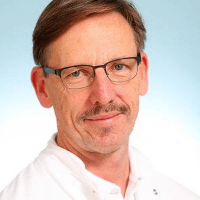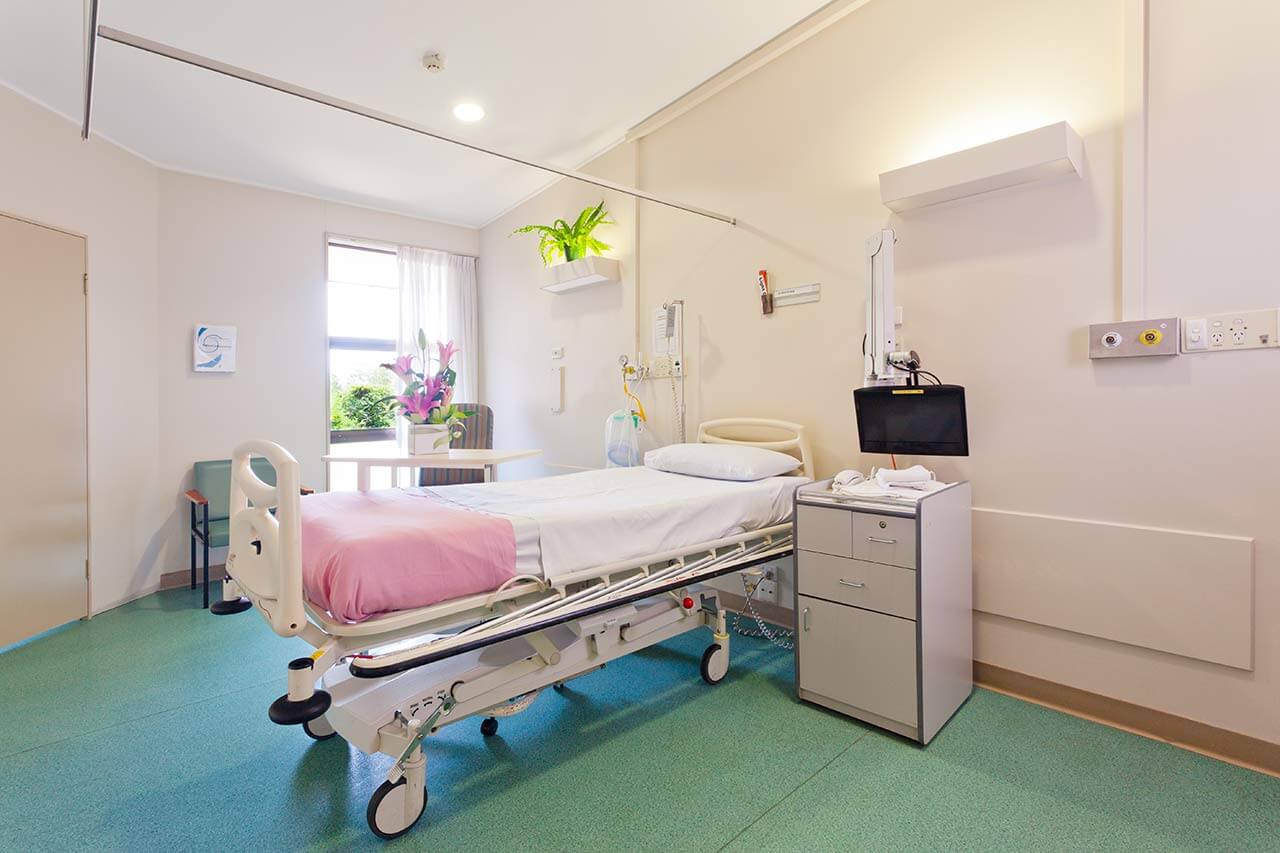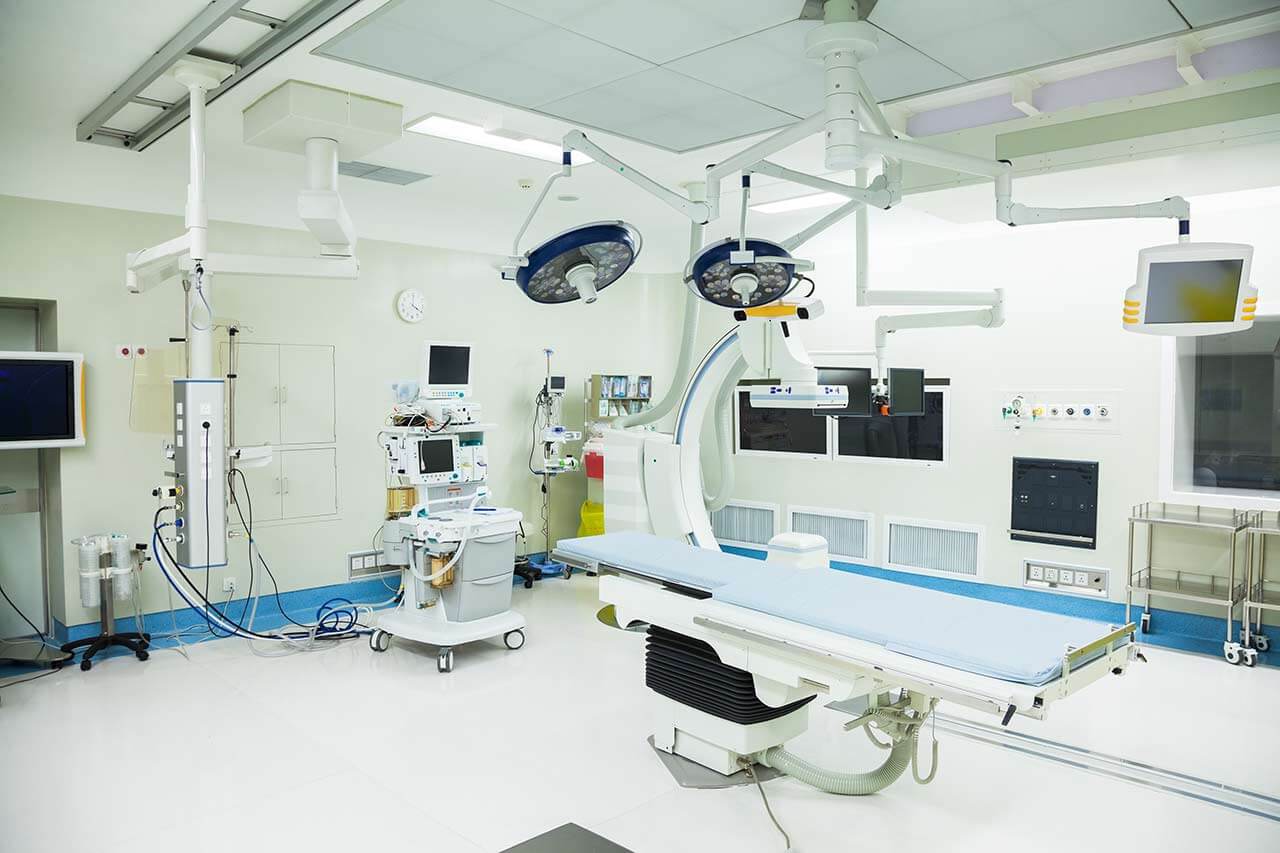
The program includes:
- Initial presentation in the clinic
- clinical history taking
- review of medical records
- physical examination
- laboratory tests:
- general blood analysis
- lipid metabolism
- carbohydrate metabolism
- mineral metabolism
- protein electrophoresis
- immune stasus
- immunofluorescence assay (IFA)
(total Lyme titer or IgG and IgM titers) - enzyme immunoassay (EIA)
- PCR detection
- inflammation indicators
- indicators blood coagulation
- joint aspiration- to exclude other causes of
effusion (eg, septic arthritis, gout, pseudogout) - CSF analysis - In patients with meningitis
- ECG - to identify Lyme carditis
- symptomatic specific treatment
- the cost of essential medicines and materials
- nursing services
- control examinations
- full hospital accommodation
- developing of further guidance
Required documents
- Medical records
Service
You may also book:
 BookingHealth Price from:
BookingHealth Price from:
About the department
The Department of Rheumatology at the Hospital Bogenhausen Munich offers the full range of diagnostic and therapeutic services for the patients with inflammatory and non-inflammatory rheumatic diseases affecting joints, muscles, tendons and internal organs. The department's medical team has over 30 years of experience in the treatment of rheumatic diseases, so the patients can be sure that they will receive the best possible medical care. In addition, the specialists have excellent qualifications in the diagnostics and effective treatment of rare types of rheumatic diseases. The department provides treatment to more than 1,600 patients every year. Many patients come to the department in order to get a second opinion, since the establishment of an accurate diagnosis plays a decisive role in the treatment success. Medical care for the patients can be provided both on an inpatient and outpatient basis. The Chief Physician of the department is Dr. med. Harald Mörtlbauer.
The first stage of treatment is diagnostics, which allows the doctors to make an accurate diagnosis and develop an optimal therapeutic regimen. The treatment of rheumatic diseases is based on the intake of drugs, which are prescribed to each patient individually. To successfully treat rheumatic pathologies, the department's doctors use immunosuppressants and biologicals. Today, it is biologicals that allow the doctors to achieve compensation for the disease and improve the patient's quality of life. Drug therapy is complemented by physiotherapy, therapeutic baths, therapeutic exercises, occupational therapy, cognitive behavioral therapy and pain therapy. The main goal of the department's doctors is to relieve pain and improve the patient's mobility. The duration of the course of treatment is usually at least 14 days.
It should be noted that the department specializes in the diagnostics and treatment of osteoporosis, and is also a certified Osteoporosis Center. The patients with osteoporosis receive medical care from an interdisciplinary team of doctors consisting of rheumatologists, endocrinologists, pulmonologists, orthopedists and traumatologists, radiologists, physiotherapists and other specialists. In case of suspected osteoporosis, the patient should undergo bone mineral density measurement (DXA), X-ray, CT, MRI, musculoskeletal ultrasound scanning and laboratory tests. If the diagnostic results confirm the presence of osteoporosis, the patient will be immediately prescribed comprehensive treatment, which includes drug therapy, physiotherapy, therapeutic baths, therapeutic exercises and other therapeutic measures that help prevent the progression of the pathology.
The treatment of arthritis is of particular interest to the department's medical team as well. The department specializes in the treatment of rheumatoid arthritis, psoriatic arthritis, reactive arthritis, gout and pseudoarthrosis. As a rule, the treatment regimen consists of drug therapy, physiotherapy, occupational therapy, behavioral therapy and pain therapy. The intensity and duration of treatment are determined for each patient individually.
The department's range of medical services includes:
- Diagnostics and treatment of arthritides
- Rheumatoid arthritis
- Psoriatic arthritis
- Reactive arthritis
- Pseudarthrosis
- Spondyloarthritis
- Diagnostics and treatment of gout
- Diagnostics and treatment of vasculitis
- Diagnostics and treatment of collagenosis, including mixed forms
- Diagnostics and treatment of ankylosing spondylitis
- Diagnostics and treatment of systemic lupus erythematosus
- Diagnostics and treatment of systemic scleroderma
- Diagnostics and treatment of fibromyalgia
- Diagnostics and treatment of osteoporosis
- Diagnostics and treatment of rare rheumatic diseases
- Diagnostics and treatment of other pathologies
The therapeutic options of the department include:
- Drug therapy with immunosuppressants and biologicals
- Physiotherapy
- Therapeutic baths
- Physiotherapy
- Occupational therapy
- Cognitive behavioral therapy
- Pain therapy
- Other treatment methods
Curriculum vitae
Higher Education and Professional Career
- Study of Human Medicine at the University of Regensburg and the Technical University of Munich.
- Doctoral thesis defense at the Faculty of Medicine, University of Regensburg.
- Preparation for board certification in Internal Medicine and Rheumatology, Department of Rheumatology at the Hospital Bogenhausen Munich.
- Senior Physician and later Managing Senior Physician, Department of Rheumatology at the Hospital Bogenhausen Munich.
- Certified by the German Society of Osteology (DVO).
- Since 01.06.2018 Chief Physician of the Department of Rheumatology at the Hospital Bogenhausen Munich.
Clinical Interest
- Treatment for rheumatoid arthritis.
- Treatment of psoriatic arthritis.
- Treatment of ankylosing spondylitis.
- Treatment of systemic lupus erythematosus.
- Treatment of systemic scleroderma.
- Treatment of polymyositis.
- Treatment of Sjögren's syndrome.
- Treatment of mixed collagenosis.
- Treatment of undifferentiated collagenosis.
- Treatment of vasculitis.
- Treatment of Wegener's granulomatosis.
- Treatment of microscopic polyangiitis.
- Treatment of giant cell arteritis.
- Treatment of reactive arthritis.
- Treatment of gout.
- Treatment of osteoporosis.
- Treatment of Paget's disease.
- Treatment of osteomalacia.
Memberships in Professional Societies
- German Society of Internal Medicine.
- German Society of Osteology.
- German Rheuma League.
- Professional Association of German Internists.
Photo of the doctor: (c) München Klinik Bogenhausen
About hospital
According to the reputable Focus magazine, the Hospital Bogenhausen Munich ranks among the ten best medical centers in Bavaria and among the top 50 medical facilities in Germany!
The medical facility is the Academic Hospital of Ludwig Maximilian University of Munich. The modern hospital with the highest level of services annually provides treatment to more than 85,000 patients with clinical cases of varying severity. With 1,000 beds, the hospital is the largest medical complex in the region. It provides both inpatient and outpatient treatment. In addition, the hospital has a 24-hour emergency service. The hospital's medical team consisting of highly qualified doctors and nursing staff focuses on tailored medical care, since they are convinced that every patient and his clinical case is unique. All employees of the hospital strive not only to provide the most effective treatment to the patient, but also to make his hospital stay as comfortable as possible. The work of doctors is based on respect and humane attitude towards their patients.
The hospital includes 18 specialized departments. Each department is responsible for the treatment of a particular group of diseases. The hospital is distinguished by outstanding successes in the treatment of diseases of the cardiovascular system, lungs and airways, gastrointestinal tract, musculoskeletal system, nervous system and metabolic disorders. Of particular interest is the treatment of cancers, which is provided on the basis of the Cancer Center certified in accordance with the standards of the German Cancer Society. The doctors of the hospital have a large arsenal of innovative treatment methods available only in the leading medical centers in Europe.
The high level of medical care is confirmed by the prestigious certificates of professional german medical societies. These are certificates of the German Cancer Society in the treatment of colon, pancreatic and esophageal cancers, a certificate of the German Cardiac Society, a certificate of the German Trauma Society, a certificate of the German Stroke Society and others.
The hospital has excellent conditions for the provision of comprehensive medical care. Long clinical experience of doctors in combination with high-tech medical equipment allows the specialist to work miracles, curing severe diseases, which doctors from other hospitals cannot cope with. The specialists of the hospital take care of both the physical health of patients and their emotional state, devoting enough time to personal communication. The efforts of the medical team are aimed at providing the patient with the most effective treatment and at completу cure of pathology, if possible.
Photo: (с) depositphotos
Accommodation in hospital
Patients rooms
The patients of the Hospital Bogenhausen Munich live in comfortable and cozy rooms with light colors. The hospital offers accommodation in single and double patient rooms. Each patient room has an ensuite bathroom with shower and toilet. The hospital also has patient rooms specially equipped for disabled people. The standard patient rooms include an automatically adjustable bed, a bedside table, a wardrobe, a table and chairs for receiving visitors. The patient rooms have Wi-Fi.
The hospital also offers enhanced-comfort patient rooms with a safe, a mini fridge and upholstered furniture.
The hospital has a library with many interesting books, magazines, CDs and DVDs. For the convenience of patients, the hospital also houses a small shop, a hairdresser and a cafe on its territory.
Meals and Menus
The patient and the accompanying person are offered tasty and healthy three meals a day. The diet is quite varied. Only fresh and high-quality products are used when cooking. Breakfast and dinner are usually served buffet style, while for lunch one can choose from three menus, including a dietary one.
If you are on a specific diet for some reason, you will be offered an individual menu. Please inform the medical staff about your dietary preferences prior to the treatment.
Further details
Standard rooms include:
Religion
The religious services are available upon request.
Accompanying person
During the inpatient program, the accompanying person can live with the patient in a patient room or a hotel of his choice. Our managers will help you choose the most suitable option.
Hotel
During the outpatient program, the patient can stay at the hotel of his choice. Our managers will help you choose the most suitable option.




